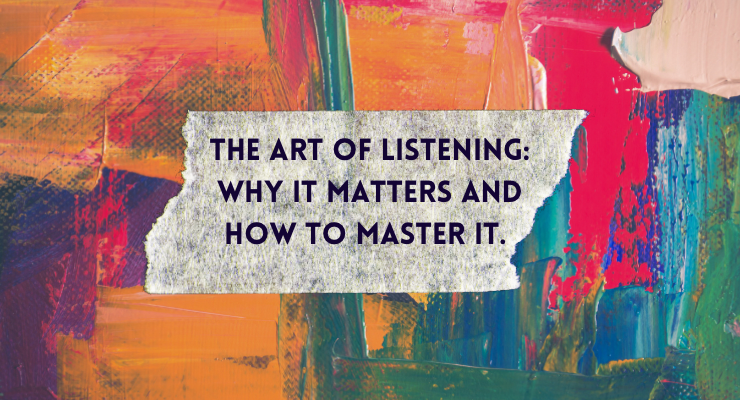I have struggled with this – was not a good listener – love a good challenge and consider my self a great problem solver. So the moment someone would start talking I would jump to conclusions and quickly start to offer half baked advice. That being said I did realise, even then, that not everyone who shares their thoughts and challenges is asking for a solution. I guess we all suffer from this to some extent. We are a bit too eager to voice our thoughts and opinions. The skill of being a good listener often takes a back seat.
Being a good listener is not just a courtesy; it’s a crucial skill that can impact your relationships, enhance your problem-solving abilities, and make you a more empathetic and understanding person.
In this blog, we’ll explore the importance of being a good listener, discuss the challenges of holding back your opinions, and provide tips on how to become a better listener. Like with all my blogs – I’ll try to keep it simple:
The Importance of Being a Good Listener:
1. Building Stronger Connections:
When you actively listen to someone, you show them that you value their thoughts and feelings. This helps build trust and strengthen your relationships.
2. Effective Problem Solving:
Being a good listener allows you to fully understand a problem before offering solutions. This leads to better-informed decisions and more effective problem-solving.
3. Enhanced Empathy:
Listening attentively helps you connect with others on an emotional level. You become more empathetic, which is crucial for providing support and comfort.
The Challenge of Keeping Quiet:
One common challenge in being a good listener is the urge to share your opinions and solutions. Here are some tips to help you overcome this challenge:
1. Practice Active Listening:
Make a conscious effort to focus on the speaker and their message. Avoid thinking about your response while they’re talking.
2. Suspend Judgment:
Remind yourself that the speaker may not be seeking advice or solutions. Sometimes, people simply need a “listening” ear.
3. Ask Permission:
If you’re itching to offer advice, ask the speaker if they would like your input. Respect their choice if they decline.
Questions to Foster Meaningful Conversations:
Asking the right questions can help guide a conversation and show your interest. Here are some open-ended questions you can use:
1. How are you feeling about this situation?
2. Can you tell me more about what happened?
3. What do you think might be the best way to handle this?
4. How can I support you through this?
Remember, the key is to ask questions that encourage the speaker to share more about their thoughts and feelings.
Hope this helps !
Believe me when I say – being a good listener is a skill that can positively impact your personal and professional life. It’s about more than just hearing words; it’s about understanding emotions, building connections, and offering support. By practicing active listening, suspending judgment, and asking thoughtful questions, you can become a better listener and, in turn, enrich your relationships and your own personal growth. So, the next time someone shares their thoughts or problems with you, resist the urge to speak and instead, lend them your ears and your empathy. 😊






